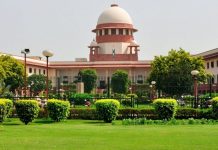This article is written by Harsh Gupta from the School of law, HILSR, Jamia Hamdard. This is an exhaustive article which deals with the application of Section 14 of the Special Relief Act.
Table of Contents
Introduction
The Special Relief Act, 1963 is related to the Indian Contract Act, 1872 where the latter defines the rights and duties of parties to the contract and the former provides for the remedies available to the parties to the contract. The Specific Relief Act provides for the exact fulfilment of the obligation or the specific performance of a contract. Now the question comes to our mind: what relief for what? So, in a contract, there are many clauses and these clauses are contractual obligations that need to be fulfilled by parties to the contract. If any party to the contract breaches their contractual obligations towards another party/parties, then compensation has to be provided for damages resulting from the breach of contract. Whenever there is a breach of contract by one party in the contract, the remedy is available for another party in the contract. Now a party to the contract can be remedied in two ways,
- by providing pecuniary compensation, or
- when pecuniary compensation is not adequate, in that case, specific relief will be provided by way of specific performance.
Specific performance is a discretionary remedy that the court provides to the affected party. As governed by the Specific Relief Act, 1963, ‘specific performance’ refers to the duty imposed by the courts on a defendant to perform what he promised and is obligated to perform in accordance with the terms of the contract he entered into with the plaintiff. However, in this article, the author has laid down emphasis on Section 14 of the Special Relief Act, 1963, and its applicability.
Contracts that cannot be enforced specifically
As a result of the provisions in Section 14, the following contracts cannot be granted relief of specific performance:
In the case of adequate compensation [Section 14(1)(a)]
The court will not order specific performance in case a party seeking compensation is able to obtain reasonable compensation. In the case of Meenakshisundara Mudaliarv Rathnasami Pillai (1918), it was held that ordinary loan contracts, whether with or without security, cannot be specifically enforced, but where a loan has already been advanced and security has been agreed to, that can be enforced specifically.
Contracts requiring personal skills [Section 14(1)(b)]
The court cannot supervise the performance of a contract that is dependent on the promisor’s qualification or that otherwise requires volition.
According to Chitty’s Contracts:
“The specific performance of a contract to build can be decreed if (i) the work is precisely defined; (ii) damages will not adequately compensate the plaintiff; and (iii) the defendant is in possession of the land on which the work is to be done so that the plaintiff cannot get the work done by another builder.”
Clauses of uncertain character
A lawsuit was filed seeking specific performance of the lease renewal agreement. In the case of Shanti Prasad Devi v Shankar Mahto (2005), it was further found that the option of renewal had been exercised against the renewal clause. The clause required the terms to be fixed and renewal conditions and periods can be discussed under the mutual agreement or through the Mukhiya or Panchas of the village. The agreement did not name any such persons. Legal notice of renewal was served by the lessee without first obtaining mutual consent. The lessee did not receive relief of renewal.
In the case of Percept D’Mark (India) (P) Ltd v Zaheer Khan (2006), it was held that the specific performance of a contract for personal, confidential, and fiduciary service that depends on mutual trust, faith, and confidence is barred under Section 14 (a), (b), (c), and (d).
Contracts that are determinable in their terms [Section 14(1)(c)]
A contract that is in its nature determinable does not require specific performance. This point is more than sufficiently explained by the illustration appearing under the corresponding provision of the repealed Specific Relief Act of 1877:
A and B agreed to become partners in a particular business. They can’t specify how long the partnership will last. The contract cannot be specifically performed, since either A or B might dissolve the partnership immediately if it were so performed.
In the case of Lewis v Bond, (1980) it was held that if the contract is revocable at the other party’s option, no order of specific performance is likely to be passed. This category includes revocable leases. In the case of Lever v Koffler (1901), it was held that a tenancy from year to year, determinable by either party by a half-year notice to quit, is however specifically enforceable.
Employment contracts are not specifically enforceable. An individual selected for a position was not permitted to hold it. In the case of Nandganj SihoriSugar Co Ltd v Badri Nath Dixit (1991), the Court observed:
“Courts do not ordinarily enforce performance of contracts of a personal character, such as a contract of employment. The remedy is to sue for damages. Specific performance is entirely discretionary and must be refused when it is not warranted by the ends of justice. Such relief can only be granted on sound legal grounds. In the absence of any mandatory statutory requirements, courts do not ordinarily force employers to hire or retain employees not required by them. Certain exceptions do exist to this rule, such as a public servant dismissed for violating Article 311 of Constitution of India; reinstatement of a dismissed worker under Industrial Law; a statutory body acting in breach of its statutory obligations, etc. This case falls outside of the exceptions. Therefore, the plaintiff’s suit for mandatory injunction was rightly dismissed by the trial court and wrongly decreed by the first appellate court and the High Court.”
In the case of Indian Oil Corpn Ltd v Amritsar Gas Service (1990), it was held that distributorships are determinable in nature. An order could not be entered for their restoration. In the case of Vidya Securities Ltd. v Comfort Living Hotels (P) Ltd (2002), it was held that an interim injunction that would restrain the termination of Plaintiff’s restaurant contract could not be granted. In the case of Bharat PetroleumCorpn Ltd v KhaybarTransport (P)Ltd (2011), a license to run a petrol pump was terminated. The license was granted under a revocable agreement. The Court said that the only remedy for the licensee was to sue for damages, not to enforce the agreement. The suit as filed was liable to be denied.
Contracts’ requirement of constant supervision [Section 14(1)(d)]
Clause (d) of Section 14(1) says that the court cannot enforce a contract in cases where the order involves the performance of a continuous duty under the supervision of a third party. For this reason, it was observed in the case of Ryan v Mutual Tontine Westminister Chambers Assn(1893), that courts have refused specifically to enforce an undertaking by the lessor of service flat to have a porter ‘constantly in attendance’, a tenant’s undertaking to cultivate a farm in a particular manner; a railroad company’s obligation to operate signals and provide power; a contract for the operation of an airfield; and the obligation of a shipowner to deliver goods in instalments.
In the case of K.M. Jaina Beevi v M.K. Govindaswami (1965), it was held that an agreement between a tenant and a landlord under which the landlord promised him that he would be provided with certain premises when the tenant vacated the site for reconstruction purposes was held to be contractual.
To a certain extent, sub-section (3) qualifies the operation of clauses that deal with situations where compensation is an adequate relief and where the contract is unilaterally revocable. Specifically, if the borrower does not plan to repay the loan immediately, an agreement to provide security or to execute a mortgage against the loan is binding. In cases where the lender has advanced only part of the loan, if he is willing to advance the remaining part of the loan as well, he can claim specific relief. The agreement to take up and pay for debentures of a company is also specifically enforceable. In addition to agreements to execute formal deeds of partnership, agreements to buy a partner’s share in the business are also specifically enforceable.
Governing contracts for construction [Section 14(3)(c)]
In regard to construction agreements, the principles embodied in English law have been adopted by subsection (3)(c). When the building is of exact nature, the plaintiff has a substantial interest in the work and the work is of such a nature that it cannot be compensated in terms of money, and the defendant is in possession of the whole or a part of the site.
In the case of Her Highness Maharani Shantidevi P. Gaikwad v Savjibhai Haribhai Patel (2001), the Supreme Court observed that the authority that had to supervise the performance of the contract had ceased to exist. It stated:
“In addition, the contention that the agreement is not specifically enforceable under clause(d) of sub-section (1) of Section 14 of the Specific Relief Act, 1963 has some merit. A contract that involves continuous work that cannot be supervised by the court is ineligible for specific enforcement in this provision. Considering the nature of the scheme and the facts and circumstances of the case, it is clear that the performance of the contract requires continuous supervision, which a court cannot perform. The competent authority is no longer required to conduct such ongoing monitoring since it does not exist after repeal.”
In the case of Envision Engg v Sachin Infa Enviro Ltd (2002), it was held that when a contract involved a public project and the Plaintiff was unable to prove any prima facie case against him and his loss could also be quantified in monetary terms, the Court refused to grant an injunction restraining the continuation of the public project.
Arbitration
According to sub-section (2) of Section 14, an agreement to refer a present or future dispute to arbitration may not be specifically enforced, except as provided in the Arbitration Act, 1940 (now the Arbitration and Conciliation Act, 1996). An arbitration agreement bars the filing of a lawsuit.
Inability to consent freely and lack of contractual obligation
In the case of Ammisetti Chandram v Chodasani Suryanarayana (2002), the vendor was not allowed to raise the plea that the sale deed was executed under distress in his second appeal since that plea was not raised in his written statement and that was a factual issue. Moreover, the Court found that there was a lawful basis for the sale agreement. The plea that the decree would cause hardship to him was not entertained at this point.
In the case of Mohd Abdul Hakeem v Naiyaz Ahmad (2004), a contract that was signed only by the vendor and not signed by the vendor’s customer has been deemed a concluded contract. The Court ruled that consensus ad idem was necessary for enforceability. On the strength of an oral agreement, a suit for specific performance can be maintained. In the case of Sachchidananda Banerjee v Moly Gupta (2014), a lady established a trust. The trust deed appointed two joint trustees. She did, however, act as a trustee on behalf of the trust and enter into a sales agreement. As a result, the agreement was in breach of the trust and exceeded the trustee’s authority. Specific enforcement action could not be pursued by the buyer.
Family settlement
In the case of Kanigolla Lakshmana Rao v Gudimetla Ratna Manikyamba (2003), it was observed that the agreement for the transfer of property, which was deemed to be part of the settlement, was not devoid of consideration. The settlement itself is a factor to consider. A deed of settlement was produced. It contained the provision for the transfer in question. It could not be said that there was no proof of the settlement, the court ruled. It was decided to pass a specific performance decree.
Conclusion
In exercising the right to substitute performance, the party loses the right to get official enforcement of the contract. Still, they may seek compensation from the party who violated the contract. A court is unlikely to order a contract of personal service to be enforced, based on various judgments and judicial pronouncements.
Whenever a performance according to the spirit of a contract rests on:
- The voluntary action of the parties,
- Or when the acts stipulated require special knowledge, skill, ability, experience,
- Or the exercise of judgment, discretion integrity, and like personal qualities in brief,
- Or if the performance according to the spirit of the contract is dependent upon the individual will and capacity of the contracting party, a court cannot impose the performance.
The following contracts are not enforceable under Section 14 of the Act:
- A contract that provides compensation in the form of money is an adequate relief.
- Contracts that require personal service,
- Contracts with unclear terms,
- Contracts, by their nature, are determinable,
- Contracts that are not valid in law,
- Contracts requiring the Court’s continuous supervision.
- Contracts for building or repairing works
- Hindu parents and guardians cannot specifically enforce a contract to give their child in marriage.
References
- https://www.mondaq.com/india/contracts-and-commercial-law/737902/section-14-contracts-not-specifically-enforceable-part-1
- https://www.obhanandassociates.com/blog/section-14-contracts-not-specifically-enforceable-part-2/
- https://www.obhanandassociates.com/blog/section-14-contracts-not-specifically-enforceable-part-3/
- https://www.aaptaxlaw.com/specific-relief-act/section-14-14a-15-16-of-specific-relief-act-1963.html
- https://blog.ipleaders.in/when-specific-performance-of-contract-is-enforceable/
- https://www.livelaw.in/pdf_upload/pdf_upload-360215.pdf
- https://www.lkouniv.ac.in/site/writereaddata/siteContent/202006152228352782Lalit%20Srivastava-Specific%20Perfomance%20Of%20Contract.pdf
- http://mja.gov.in/Site/Upload/GR/Title%20NO.48(As%20Per%20Workshop%20List%20title%20no48%20pdf).pdf
- Ryan v Mutual Tontine Westminister Chambers Assn ,[1893] 1 Ch. 116https://www.scconline.com/Members/SearchResult.aspx#:~:text=RYAN%20v.%20MUTUAL%20TONTINE%20WESTMINSTER%20CHAMBERS%20ASSOCIATION.
LawSikho has created a telegram group for exchanging legal knowledge, referrals and various opportunities. You can click on this link and join:
https://t.me/joinchat/L9vr7LmS9pJjYTQ9
Follow us on Instagram and subscribe to our YouTube channel for more amazing legal content.
 Serato DJ Crack 2025Serato DJ PRO Crack
Serato DJ Crack 2025Serato DJ PRO Crack











 Allow notifications
Allow notifications


